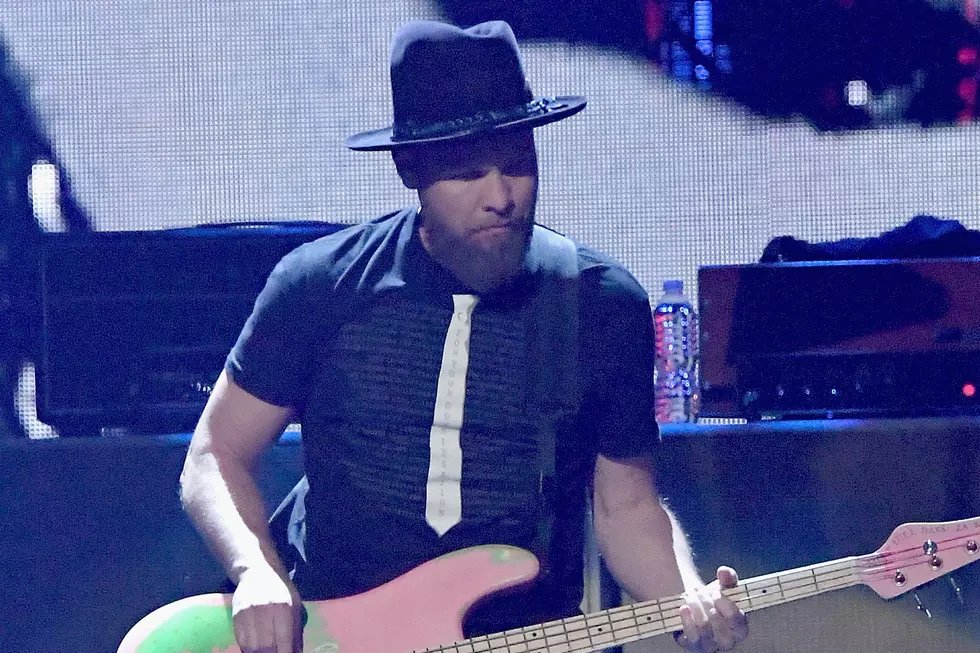
When Pearl Jam Took Flannel to the Masses With Their Debut, ‘Ten’
This was the album we were all supposed to hate.
At the dawn of the grunge era, authenticity (or at least the perception of it) was everything. The slightest whiff of "corporate," "sellout" or "poseur" was the kiss of death in a scene typified by thrift store fashion and punk rock ethics. Nirvana, Soundgarden, Alice in Chains – they were the real deal. But those Pearl Jam guys? Slick sound, major label, good hair, come on!
The irony, of course, was that Pearl Jam's grunge roots ran deeper than almost any other band on the Seattle scene. Bassist Jeff Ament was a founding member of Green River, the granddaddies of grunge, back in '84. Guitarist Stone Gossard joined later that same year. By 1988 the two (along with Green River guitarist Bruce Fairweather) had joined Andrew Wood to form Mother Love Bone, the band that everybody expected to be the breakout success from Seattle.
You know the story: Wood died before Mother Love Bone's debut was released, leaving Gossard and Ament adrift on the edge of success. The two formed Mookie Blaylock along with lead guitarist Mike McCready. With the help of Red Hot Chili Peppers drummer Jack Irons, they found a new lead singer, a San Diego surfer and gas station attendant named Eddie Vedder. With the addition of drummer Dave Krusen, the new band's lineup was set.
Meanwhile, Andy Wood's former roommate, Chris Cornell, wanted to record some songs that he'd written in memory of his friend, and getting the guys from Mother Love Bone involved made that tribute that much better. Released April 1991, Temple of the Dog featured all of the members of Mookie Blaylock with the exception of Krusen.
The odd band name was a nod to Mookie Blaylock, an NBA player, but according to an article in Deadspin "they dropped the name after deciding that being named after some other dude was weird, and misleading." Jeff Ament is quoted in the same article as stating that the band used the name for a 10-show tour with Alice in Chains. Shortly thereafter, they changed their name to Pearl Jam.
One of the demo cuts that Gossard and Ament sent Vedder down in San Diego was a song named "Dollar Short." With the addition of the singer's lyrics – a semi-autobiographical story – the song eventually became Ten's leadoff single, "Alive." It's a stunning song: big, anthemic and open to interpretation. Those who wanted to hear a message of hope got what they wanted and those who wanted to hear a bitter tale of loss and parental deceit got that, too. And then there was that least punk rock thing of all: an actual guitar solo. And not just any solo. Mike McCready borrowed the sexy descending run down the fretboard made famous by Ace Frehley in Kiss' "She." It was a big, cool rock star moment, and the grunge cognoscenti hated it.
Pearl Jam were accused of being sellouts, making a brand of arena rock meant for jocks in Chevy Camaros rather than outcasts in cardigans and Doc Martens. A month after Ten was released, Nirvana's Nevermind dropped, yet somehow the guys from Green River were labeled bandwagon poseurs.
The fans didn't seem to care. The record just missed the No. 1 spot on Billboard's album chart, peaking at a very respectable No. 2. The second single, "Even Flow," is another juxtaposition of heavy storytelling and deceptively feel-good classic rock vibes, this time combining the topic of homelessness with a musical nod to Stevie Ray Vaughan.
After the 1999 Columbine tragedy, the album's third single appeared to be remarkably prescient, but "Jeremy" was no eerie gaze into a crystal ball. The song is based a 1991 incident in which a Texas 15-year-old named Jeremy Wade Delle committed suicide in front of his classmates.
That song was written by Ament, with lyrics by Vedder, whose tasteful bass is the foundation of Pearl Jam's sound, along with Stone Gossard's rhythm guitar. McCready's fireworks on lead guitar are certainly key to that sound, too, but what really makes Pearl Jam distinctive is Vedder's voice. He can move from growling baritone to soaring wail, but his signature at the time was a sort of half-swallowed mutter that writer Stephen Thompson famously labeled "hunger dunger dang." By the mid-'90s, Vedder's unique style was anything but, powering bands like Bush, Creed and Nickelback.
The album's fourth and last single, "Oceans," feels more like a deep cut than a single. There's no boom-boom-bap beat to dance to, no majestic guitar solo, just...vibe. "Oceans" is actually more indicative of the album's tone than any of its predecessor singles. Along with songs like "Black" and "Release," Ten is more meditative than mosh pit.
Ten went on to sell 13 million copies, but before we submit that as exhibit Q that Pearl Jam were the sellouts of grunge's first graduating class, keep in mind that Nevermind sold 30 million copies. Pearl Jam were far from sellouts: The band went on to put their muscle behind numerous causes, perhaps most famously taking on Ticketmaster. The only thing Ten has to apologize for is being too damned good. It still sounds as great as it did when we first cracked the shrink-wrap.
Pearl Jam Albums Ranked in Order of Awesomeness
More From Diffuser.fm









